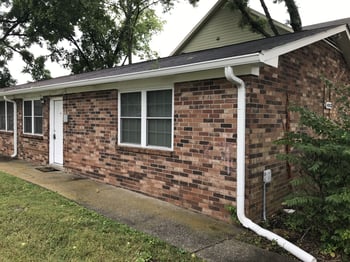
Wondering about the escrow process when buying a home in Nashville? As a buyer or seller, you might be surprised to learn that you don’t usually need to do much. Often your agent, or sometimes your lender, will get the ball rolling for you.
WHAT IS ESCROW?
Escrow is generally defined as the period between contract and closing. When you “open escrow” it means that you’ve asked a title company or attorney to start a file with the aim of coordinating the efforts of all parties to result in the transfer of the ownership of real property.
In Tennessee, the buyer and seller will have designated their title/escrow companies at the time of executing their purchase agreement. It is not unusual for the buyer and seller to work with different title companies in Nashville – though it is sometimes easier to work together.
WHAT DO ESCROW AGENTS DO?
Escrow agents do many things simultaneously. They will hold and then ultimately distribute money and paperwork in a safe place to facilitate a transaction.
They will start by reaching out to you to collect personal information. This may include social security info, birthdates, and loans numbers. If purchasing, they will discern the manner in which you intend to hold title (tenants in common, joint tenancy, etc.)
They will perform a preliminary title search to learn who formally owns the property and discover any liens or encumbrances that might be outstanding.
They will prepare the documents required by the state such as the deed of trust.
They will receive a package from the lender that outlines instructions on balancing accounts.
They may hold earnest money or other deposits.
They will follow the contract in determining the proper prorations of property taxes, HOA dues, and HOA set-up fees.
They will secure and issue the title insurance policy.
WHAT’S THE COST?
The cost varies depending on the complexities of the deal. The title company we recommend charges $450 for their services. This does not include the cost of title insurance.
HOW LONG DOES IT TAKE?
This will vary. A cash purchase can happen in a matter of days if need be. When a loan is involved it is common for 30-45 days to be normal.
WHAT HAPPENS ON CLOSING DAY?
A day or two prior to settlement, a preliminary closing statement will be sent out for review by all parties. On the agreed-upon closing date, everyone signs docs (many, many docs). After which the title agent will file the proper paperwork with the county, distribute funds, and hand over the keys. If the buyer and seller have two different firms, they will swap documents.
DO I NEED TO BE THERE TO SIGN?
The answer is yes and no. When possible, it’s recommended that you go to the closing office and sign docs for yourself. If you live locally, it’s possible that someone from the company might be able to bring the paperwork to your home or office, but if there are last-minute changes, out-of-office signings can be challenging.
If you live out of area, there are a couple of ways to set up signing.
- the title company can coordinate with an attorney, title rep, or bank in your area for you to visit
- the title company can send a mobile notary to your location (for a fee)
- If you are a cash buyer or a seller, if may be possible for the title company to email or overnight the docs to you. You can sign them in front of a notary and overnight the originals back to the closing company.
If these options aren’t suitable, another solution can be found in setting up a limited power of attorney scenario. One spouse can give the other the power to sign in their absence, for example. You can also give limited power to the title company itself. We like this for sellers that might be on the road. For example, seller signs limited power over the title company on a Tuesday. They drive out of town on Wednesday. On Thursday the preliminary closing costs are emailed for review and acceptance. On Friday the title company signs on the seller’s behalf and wires them the proceeds.
DO I NEED A LAWYER?
In some parts of the country (I’m looking at you Chicago and NYC), it’s common to have an attorney review period or contingency written into contracts. In Tennessee, we don’t commonly do this. We’ve sold hundreds of homes and I could count the number of deals that involved official reviews on one hand. In Nashville, title companies are typically owned by attorneys so if you have questions, they are generally glad to take your call. However, it is absolutely within your right to ask for a review period – just make sure your agent writes this into the contract’s Special Stipulations section when making the initial offer.
PRO-TIPS
Fridays are hectic at title companies. Especially the last Friday in a month. Busy, busy, busy. Mondays can also be a challenge as paperwork delays can occur on the first day of the week. Title agencies are closed on holidays and weekends. When possible, we recommend aiming for a Tuesday, Wednesday, or Thursday closing.
If you are a buyer, set your closing time during mid-day if possible. If you close in the morning, you run a real chance of signing papers before the seller’s proceeds money arrives from your lender. When that happens, sometimes sellers are hesitant to hand over keys until the funds arrive. Similarly, when you close late in the afternoon, often the deed can’t be recorded until the following day. If you are a seller, the timing doesn’t really matter. Early or late, before or after buyer… makes no difference. The proceeds will be wired to you as soon as possible. This is sometimes the same day, but often the following day.
Speaking of wiring money, buyers should double-check, then triple-check their wiring routing numbers. Around the country there have been complicated scams whereby criminals attempt to intercept themselves into transactions. They typically hack into email accounts and send very real-looking instructions with phony destinations. When you receive the routing instructions. we advise you to look up the telephone number on the website of the title company, then pick up the phone and call to verify the numbers. Wiring instructions should NEVER come from you agent.
Finally, if your agent recommends a title company, consider using them. It can be helpful in assuring that balls aren’t dropped in the process when he/she is familiar with a particular firm’s processes.

































